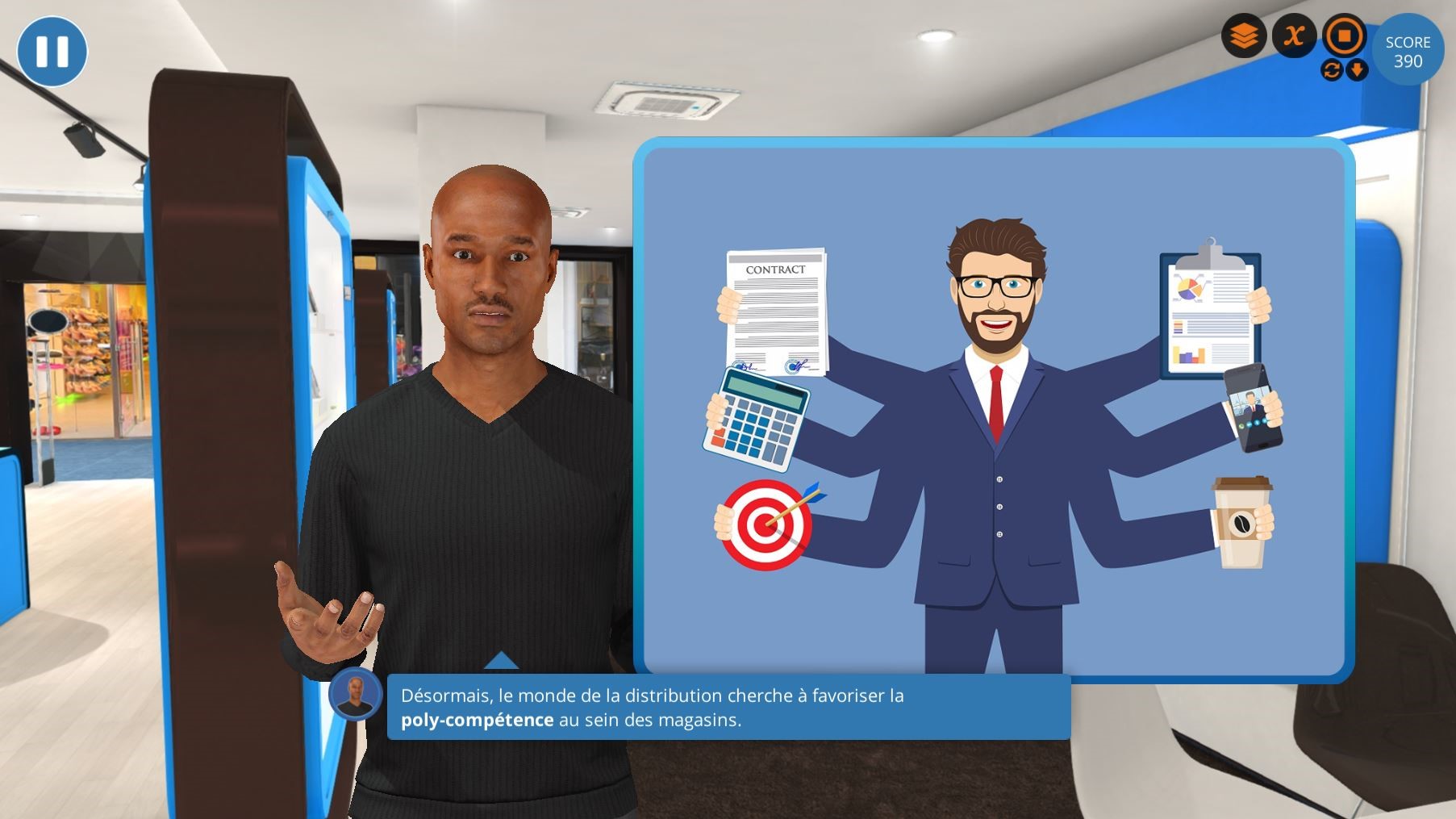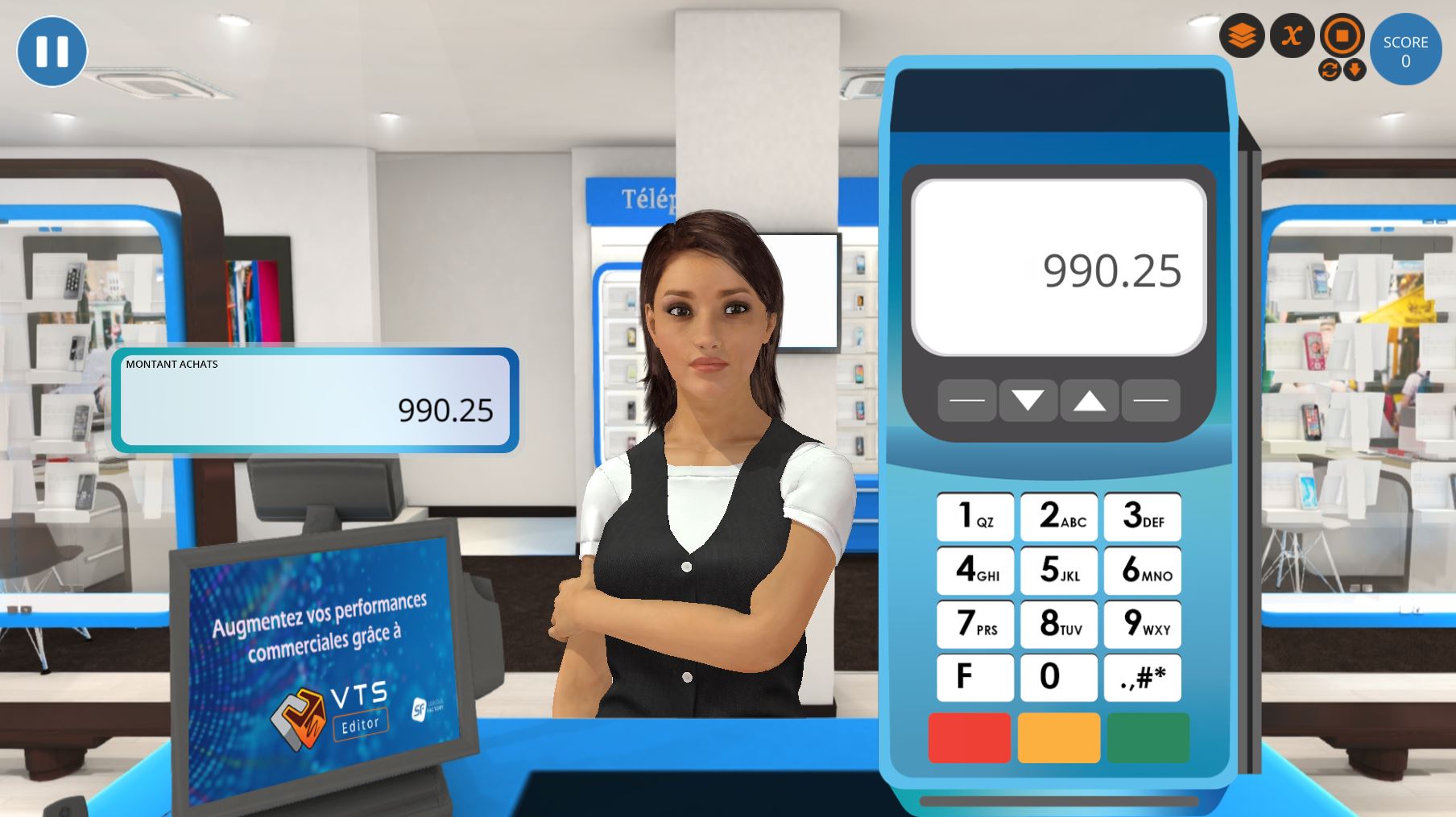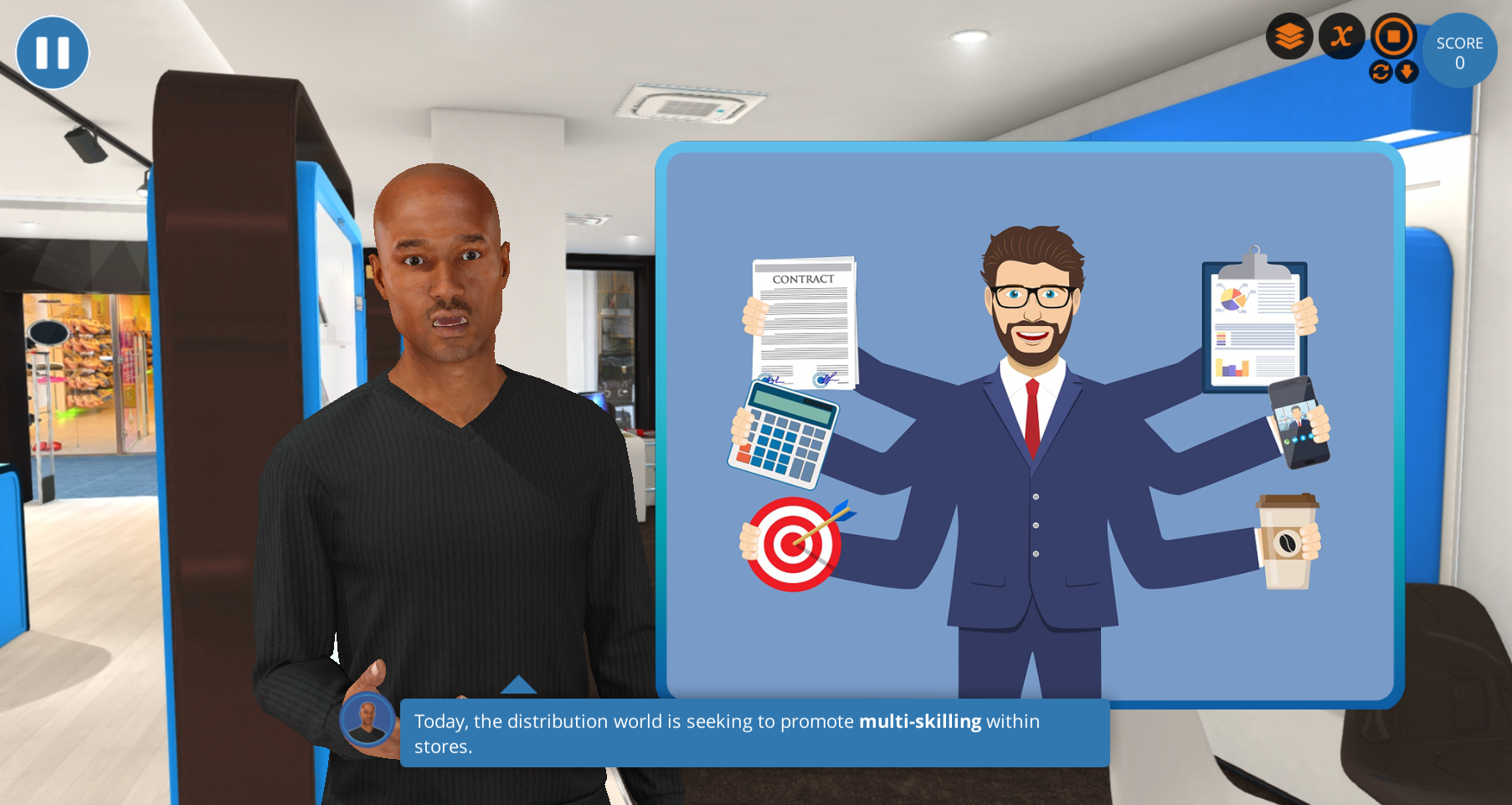Digital training to boost performance
The trade and distribution sectors are one of the largest providers of jobs in the world. Many employees will therefore need to be trained to carry out their work effectively and respond perfectly to customer needs.
For this reason, face-to-face training remains the preferred method of training managers. Nevertheless, these training courses now tend to be digitised. Thus, many training managers have already been convinced by the relevance of digital technology to improve the pedagogical effectiveness of training. Objective: train employees easily, when you want, where you want and at a lower cost!
And digital training has already proven its worth! In 2011, Yves Rocher, a French cosmetics company, chose to integrate e-learning into its training courses by offering its customer advisers an integration programme based on Blended Learning. Result: a growing turnover. “The main challenge was to demonstrate the impact of training on business performance. To do this, we analysed the productivity of the client advisers who benefited from the integration programme. We measured a 40% increase in hourly turnover in six weeks.” said Véronique Wojciechowski, Director of Retail France Training at Yves Rocher. A better customer reception, a better presentation of the products and adapted advices were the key to make the customer experience as efficient as possible.
The customer experience at the heart of the distribution sector’s priorities
With online retail sales continuing its growth, customers are now more volatile and traditional retailers are seeing their market share decrease. To face this competition, the brands rely on the quality of the customer experience. Indeed, to facilitate the customer’s purchase, the product must be available, well presented with a good quality/price ratio. The respect of the best practice of merchandising (full product shelves, clean merchandising and up-to-date prices) therefore becomes a real challenge and an important subject to be addressed when training employees.

By training your employees through Digital Learning, you put all the chances on your side to quickly increase your NPS (Net Promoter Score) alongside your primary indicator of customer loyalty and satisfaction. In addition, for companies with a multi-channel policy, such as an online ordering and in-store withdrawal strategy, training employees digitally is equally crucial: By leveraging the online experience, customers are attracted to the store and the view of a shelf full of products, clean and with up-to-date prices can make them want to buy, thus generating additional purchases.
Digital Learning for multi-skilled employees
In distribution and especially in specialised distribution, sellers are often dedicated to a particular department. Nevertheless, references are multiplying, promotions and sales are pushing them to better know the products for which they are not specialists. A seller in the television department may, for example, be confronted with a customer who asks for information on a product from the sound department. And with the digitalization and explosion of Big Data, this sector requires sellers, cashiers and logistics specialists to be multi-tasking and to quickly assimilate information: checkout, manage loyalty or membership cards, scan items, handle warranty extension, etc.

To prevent them from being lost by this kind of demand, a specific digital training can therefore be set up. This would allow them to better manage unusual situations by developing skills and product knowledge. Even better, you can take the digital experience one step further with immersive simulations. These simulations can be created entirely by yourself using authoring tools such as VTS Editor and accelerate the development of the employee’s soft skills. Thus, for example, the seller will obtain the ability to adapt his non-verbal communication style according to the situation or the person he is dealing with thanks to the realism of the characters of the simulations.

But the individual skills of the employee are not the only ones to be worked on through Digital and Immersive Learning.
Digital Learning, the key to good cross-functional communication between the various departments
Integrating Digital Learning into one’s training path also has the advantage of making it easy to train the employee for the sake of a better teamwork between the different poles and the hierarchy. This is called transversal communication.
Transversal communication is a key factor in delivering quality service to customers. Indeed, it is a question of developing better communication between the different poles that make up the company. This ensures, among other things, that the customer requests are handled in the best possible way. For example, good communication between the seller and the logistics provider will allow the customer guaranteed availability of the product they have ordered or booked. In the event of miscommunication, they may have to go back to the shelf and then to the cash register to be reimbursed, resulting in frustration and a negative impact on the NPS.
In addition, transversal communication enables all teams to be effective by informing them of all the different offers such as promotional offers and zero-rate credit, even if it does not directly concern their department. It is no longer a question of nurturing the idea of a “shelf” or “department” culture, but of a “store”, “group” or even “family” culture among employees. Cohesion between the different services is essential for customer satisfaction and loyalty.
Virtual Training Suite, a real asset for the training of distribution professions
In order to meet these challenges, Serious Factory brings you Virtual Training Suite, its software solution for the development of skills, whether it be knowledge or soft skills, of your learners. The advantage of this solution is that it has all the tools at its disposal to create (VTS Editor), deploy (VTS Perform) and read (VTS Player) immersive simulations with a high pedagogical value. These simulations can meet the challenges of training in distribution and specialized distribution by immersing the learner in an environment adapted to their profession. This will allow you to create an immersive sales simulation for sellers using the VTS Editor authoring software that puts them in front of a customer asking for information for a specific product. You can then deploy them via VTS Perform and read them with VTS Player, where and when you want on any device.
Using Virtual Training Suite in your distribution training strategy is:
– Train learners at a lower cost and without having to mobilize a trainer as soon as they need or wish to be trained.
– Give learners the opportunity to train anywhere and anytime on all types of media (Windows, Mac, Android, iOS, Tablet and Cardboard)
– Adopt a pedagogical approach based on concrete cases that are close to reality and that allow for better retention and optimized implementation of skills.
– Be able to follow the progress of their knowledge and skills with a scoring system.

